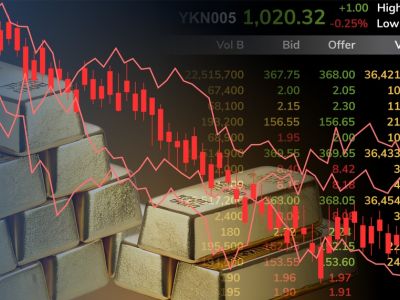The International Monetary Fund released a statement on its 2019 Article IV consultations with Lebanon on October 17, the same day protests erupted in what became known as al-thawra — “The Revolution.”
The statement called for a fiscal adjustment to reduce a government deficit and $88 billion public debt, at around 150% of GDP, the world’s third-largest.
The International Monetary Fund (IMF) advised “fundamental structural reforms,” including reducing “vulnerability to corruption.” Both the outgoing government led by Saad Hariri, who left office January 21, and the new administration under Hassan Diab have taken only short-term measures. These have seen the Lebanese lira fall against the US dollar and banks impose de facto capital controls limiting customer access to accounts, especially in dollars.
A 33% drop in the lira — analysts said they expect the slide will continue — should stimulate exports. Lebanese businesses should also benefit, at least in the medium term, from lower borrowing rates. The private sector has been squeezed since the 1990s by a dollar peg of 1,500 lira and high-interest rates designed to attract diaspora deposits and help finance the government deficit.
The export potential is vast. Government figures put the 2019 trade balance deficit at $15.5 billion, with $19.2 billion imports and $3.7 billion exports. The World Bank forecasts a balance of payments deficit in 2020 of 21.4% of GDP.
Lebanon’s biggest export market, by government figures, in 2019 was Switzerland (28%), followed by the United Arab Emirates (12%) and the European Union (11%). Easily the biggest exports are jewellery, gems, and precious metals, with agribusiness very undeveloped.
Exporters face significant short-term challenges. The Lebanese economy will contract 5% in 2020, consultants Capital Economics said. Exporters also can expect rising costs. It’s not just the jewellery industry, which brings in gold and stones priced in dollars, that imports components.
“We’re selling globally through our website,” said Rima Nazer, of Jardins D’EDEN, a brand developing traditional olive-oil soap for bath and face treatments. “While we use local Lebanese ingredients, we import essential oils, argan oil, rosehip oil, and shea butter.
“We’ve been having problems with the banks but we do have an account in the UK (that) enables us to pay in pounds sterling for imported ingredients.”
“Apart from grapes, wine producers have to buy raw materials in euros,” said wine writer Michael Karam. “Bottles, corks, foil, labels, fermentation tanks, crushers, de-stemmers, barrels and the like are imported.
“On the upside, though, wineries with a presence in export markets are redoubling their efforts, for example, in the UK, Germany, and northern Europe, Dubai and New York, to generate much-needed hard currency.”
Yasser Akkaoui, editor-in-chief of the business magazine and website Executive, argued Lebanese businesses were ill-placed to exploit lower interest rates and a competitive lira.
“Lebanon isn’t a big exporter of anything,” Akkaoui said. “Agriculture hasn’t developed. We were never able to revive the industry: land, electricity, everything is so expensive. With tourism, we haven’t managed our regional relationships so the [visitors from the] Gulf states aren’t coming.
“Our apples are so filled with pesticides that they’re forbidden worldwide, so only Mozambique imports them. We have failed to fix a very manageable fungus in our potatoes. Our wheat isn’t up to standard. We grow it, then throw in the garbage and import wheat.”
Perishable goods are tricky to export, Akkaoui added. “To be competitive in Europe, you have not just to factor in transport costs, you must also meet European standards. Without a competitive advantage, you need good marketing. Even so, the artisanal, high-end market is small, even if we can specialise in design agriculture,” he said.
The real obstacles, however, are fundamental. “The three pillars to take us out of this crisis are fiscal action, judicial reform and curbing corruption. The first step has to be elections, which direct the energy of the people on the street, and then getting a parliament with 25-30% independent reformists. In the corporate world, if a third of your board is independent you have oversight that can be trusted,” Akkaoui said.
For Lebanese businesses and exporters, such a break from past practice is just as important as the government quickly implementing a short-term survival package, with or without direct IMF involvement. Fundamental structural reform, as the IMF argues, is just as pressing as Lebanon deciding whether to repay the $1.2 billion Eurobond due March 9 (trading recently at under 60 cents) and the $700 million and $600 million bonds due in April and June.
“The independence of the judiciary is vital not just to reassure the Lebanese citizen but to convince the international community that in any dealings with Lebanon, including investment, their rights will be preserved,” said Akkaoui. “Without the three pillars, even the world’s best economic plan will not mean Lebanon will pick up. Whether we default in March or not isn’t the real issue.”










